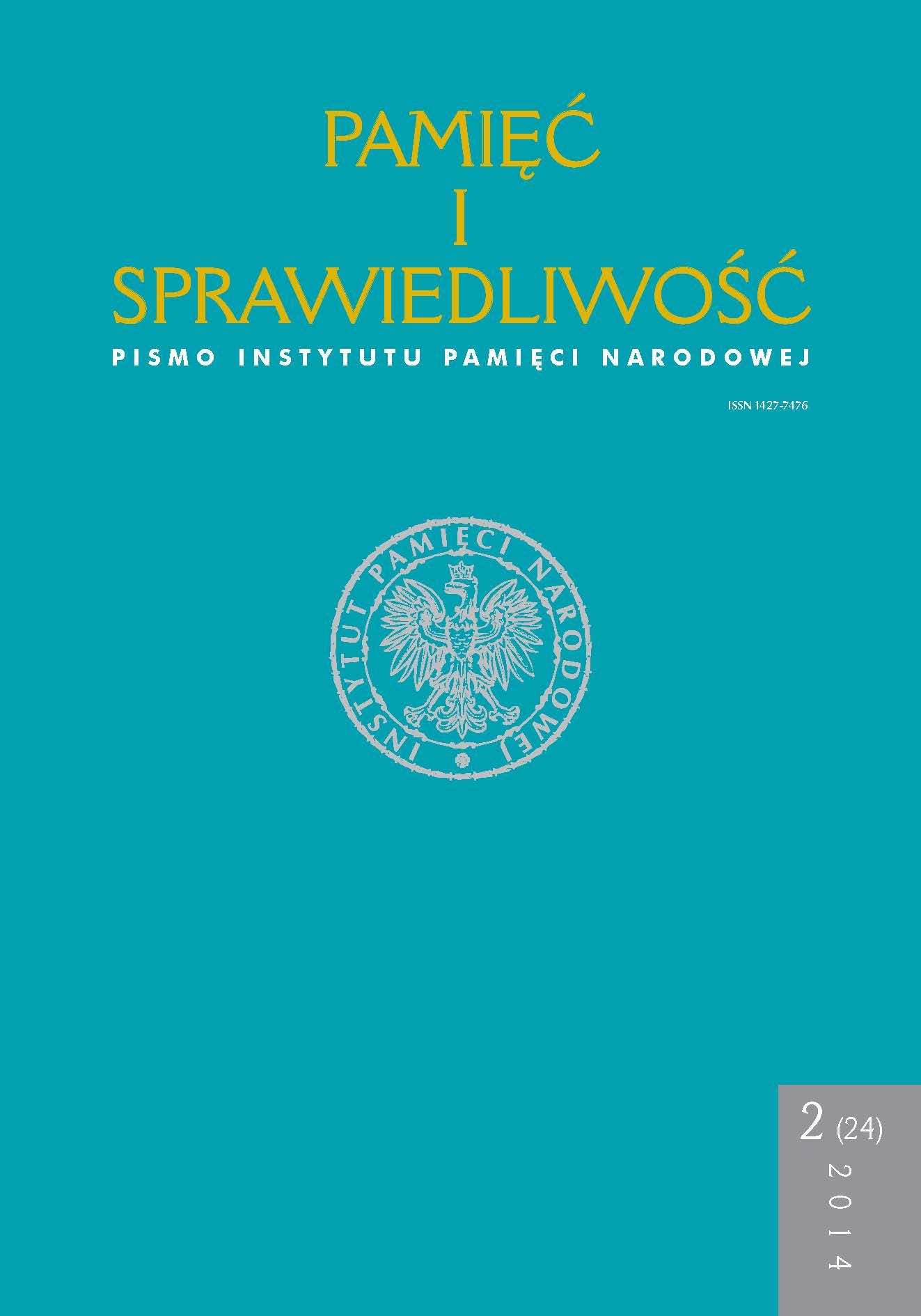„Odmówił powrotu do kraju” – ucieczki piłkarzy z PRL na Zachód
Pamięć i Sprawiedliwość, Bd. 24 Nr. 2 (2014), pages: 387-421
Publication date: 2014-12-30
Abstract
Illegal emigrations of football players from the People’s Republic of Poland were quite
frequent, but in most cases they were not treated as high profile in the mass media. The
only exception was the 1988 escape of Andrzej Rudy, a player in Poland’s national football
team. The examples of emigrating athletes discussed in the text have been divided into two
categories: defectors per se (those who left their teams’ foreign training camps), and people
who refused to go back to Poland after legally obtaining a consent to travel to a Western
country (or Yugoslavia). The first case of an athlete illegally leaving Poland took place in
the 1950s, while the last one in the last months of the break-through year of 1989. It was
usually footballers playing for Silesian clubs who opted for illegal emigration to West
Germany. Family reasons were often quoted as a basis for making such a decision – numerous
defectors were able to prove their German roots. The 1980s saw a particular intensification
of escapes, which was related both to deteriorating economic conditions in Poland and
more liberal passport policies at the end of the decade. It is worth noting that the
communist authorities changed their attitude towards the phenomenon. While in the 1960s the
secret police would keep the defectors and their families under surveillance, 20 years later
the government would simply register anyone “refusing to return to Poland”.
Am häufigsten gelesenen Artikel dieser/dieses Autor/in
- Sebastian Pilarski, Procesy polityczne stanu wojennego w perspektywie lokalnej. Przypadek województwa kaliskiego , Pamięć i Sprawiedliwość: Bd. 43 Nr. 1 (2024)
 Język Polski
Język Polski
 English
English
 Deutsch
Deutsch
 Français (France)
Français (France)
 Italiano
Italiano
 Русский
Русский


 PDF (Język Polski)
PDF (Język Polski)
